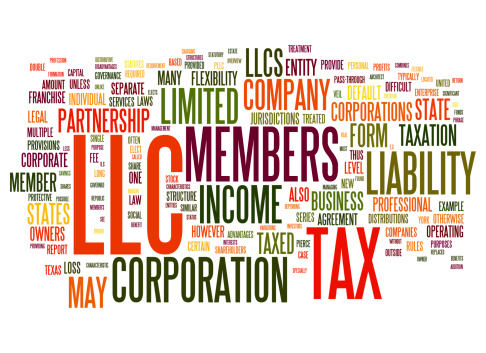By David Waring
An LLC is a popular and versatile legal structure for businesses, whether the business is a single solopreneur carving out a space in his niche, or a Big 3 auto company trying to regain its footing after a series of mergers and buyouts. Converting an existing business to an LLC can be quite simple depending on the type of business you currently operate and the state in which your business was formed. On the other hand, it could also be a rather complex, tedious and costly process depending on those same factors.
Reasons for Considering a Conversion
Business owners choose to change the structure of a business for a variety reasons. You may need to make your business more scalable after a growth spurt. Perhaps you are restructuring to woo investors. You may be dissolving a general partnership in favor of more liability protection or simply to go into business on your own. Other reasons include reducing tax liabilities, looking for more flexible business operations, or switching to a structure that provides more protection for your personal assets. Depending on the type of business structure you are converting from, a limited liability company may be able to fulfill any of those needs.
Executing Conversions
The first thing to remember when it comes to converting your business from its current legal structure to an LLC is that the limited liability is a state-level designation. Where the IRS is concerned, an LLC is not a separate tax entity. An LLC can be taxed as a corporation or its members can be taxed as partners (or a sole proprietor if there is only one member). Keep that in mind as we walk through the methods of conversion for various types of entities. The simpler conversion can be done with the help of a third party incorporation service like LegalZoom. But seek the help of a business attorney and a CPA for the more complex conversions.
Related Reading: How does forming an LLC with LegalZoom? Read This
Sole proprietorship to LLC – Converting your business from a sole proprietorship to an LLC is a seamless process. Once you decide on a name for your limited liability company and conduct the name search to ensure your name is available, you can file the Articles of Organization with the Secretary of State (or equivalent state agency) in your home state. You gain liability protection for your personal assets, but your tax status won’t change. You will still file Form 1040 for your tax return along with a Schedule C to report business profits and losses. You don’t have to get a Tax ID number, but when you are conducting business, it is always advisable to do what you can to keep your personal finances separate from your business finances.
General Partnership to LLC – There are generally two options available for converting a partnership to a limited liability company. Your state may offer the option to simply file a Certificate of Conversion. Other states require you to file new Articles of Organization. Some states, like Michigan, require both. Your state may require the current partnership to publish a notice of the dissolution in a local newspaper before forming an LLC. Unless you choose to have your LLC taxed as a corporation, the filing requirements for your limited liability company will be the same as the filing requirements for the general partnership. File Form 1065 for the partnership and Form 1040 for the individual partners. If you change the name of your business or your state requires you to dissolve the partnership in order to register the LLC, you will also need to apply for a new Tax ID number. Check with your state to find out if your situation requires you to re-apply for professional licenses and permits.
Understanding the Nuances of Converting a Corporation to an LLC
Here is where things get more complicated. Again, to avoid a misstep and quite possibly a large tax bill, seek the advice of a corporate attorney before converting a corporation to an LLC.
The way in which you convert a corporation to an LLC varies depending on the nuances of each entity and the states in which they were formed. Conversion types are:
- C-Corporation to LLC taxed as a corporation
- C-Corporation to LLC taxed as a partnership
- C-Corporation to LLC taxed as a sole proprietorship
- S-Corporation to LLC taxed as a corporation
- S-Corporation to LLC taxed as a partnership
- S-Corporation to LLC taxed as a sole proprietorship
Converting a corporation to an LLC can be a matter of writing down a plan, taking a vote, and filing the right paperwork. This is called a statutory conversion. The board of directors organize and document a plan of conversion that outlines how and why the corporation should convert to an LLC. Once the plan is laid out, the directors recommend the idea to the stockholders who then vote in favor of the plan. Once this has been done, file a Certificate of Conversion and the new Articles of Organization.
If your state does not allow statutory conversions, your next strategy is a statutory merger. The goal here is to initiate a merger in which the new LLC swallows up the corporation. This will require creating the new LLC first. For a brief period, the corporation stockholders will also serve as stakeholders / members of the new LLC. Again, the corporate stockholders will need to have a documented meeting wherein they vote to approve the merger. They will need to vote to approve the merger as LLC stakeholders. The stockholders must agree to have their respective shares converted to membership interest in the new LLC. The merger is then filed with the Secretary of State.
The final method is a nonstatutory conversion. This method essentially requires you to completely deconstruct the corporation in order to transfer its people, assets, liabilities and shares into the new LLC. By far, it is the costliest and most time-consuming option of the three but it is effective.
Before the conversion or merger begins, make sure there is already an operating agreement in existence for the new LLC. And be careful as you are converting your business. The IRS views conversions as liquidations, which may leave stakeholders paying hefty capital gains taxes on the income generated by the conversion. Find a good business attorney and a CPA who can help you navigate this terrain so you don’t end up paying unnecessary fees while you are restructuring your business.
David Waring is a cofounder of Fit Small Business, a publication that provide in-depth articles about topics such as forming an LLC or SBA Loans.







